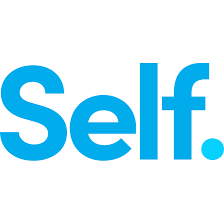
at Self
How Self — formerly Self Lender — works
How to qualify for a credit-builder loan with Self
- Be at least 18 years old.
- Be a permanent U.S. resident.
- Have a Social Security number.
- Have either a bank account or debit card; a prepaid card is OK.
Self fees and penalties
Self secured credit card
Credit-builder loans vs. secured cards
- You don’t need money upfront to get the loan. With a secured card, you typically have to pay a deposit upfront, and that amount is generally your credit limit.
- You cannot access the money on deposit until the loan is paid off. With a secured card, you can use up to your credit limit anytime — though doing so will increase your credit utilization and hurt your credit until the balance is low again.










